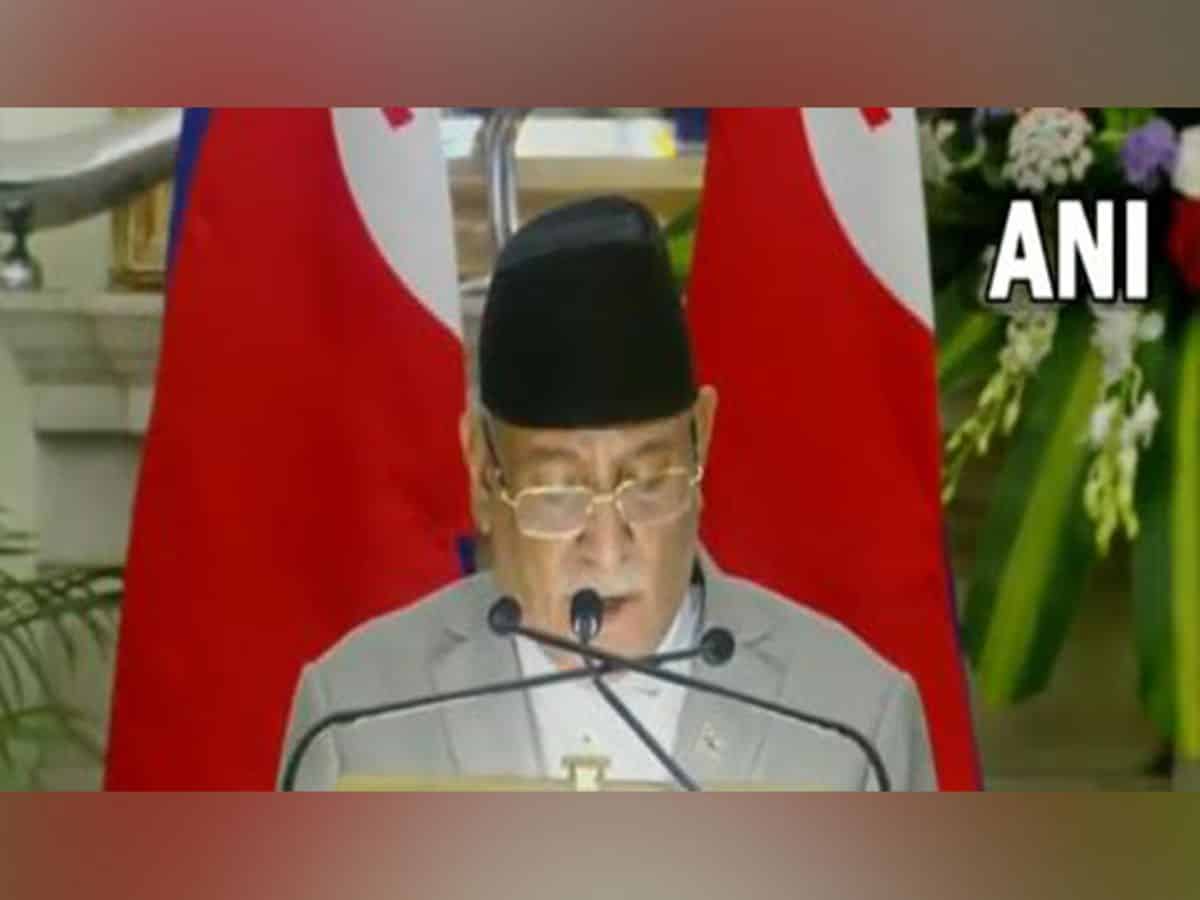
Kathmandu: Prime Minister Pushpa Kamal Dahal ‘Prachanda’ on Monday said that officials from both Nepal and India should sit down for discussions to resolve the border issue between the two countries.
Prachanda visited India from May 31 to June 3, his first official trip abroad since assuming office in December 2022. His meeting with Prime Minister Narendra Modi on Thursday saw the two countries signing seven agreements and launching six projects including new railway services.
The two leaders also vowed to resolve the vexed boundary dispute in the spirit of friendship.
Responding to the questions from lawmakers regarding the agreements reached during his India visit and the authentication of the Citizenship Amendment Bill in the House of Representatives, Prachanda said that Nepal and India both sides should sit together and hold discussions, keeping the map before them.
“Discussions have been held on several issues during my India visit. We are concerned on matters relating to national interest and sovereignty. Talks have also been held on the issue of the map,” the Prime Minister told the Parliament.
When asked about wearing a saffron-coloured shawl while offering prayers at Mahakaleshwar Temple in Ujjain city of Madhya Pradesh during his visit, Prachanda said, “No one should do anything that belittles the religious faith of the people”.
“I went to Indore to learn about wastage management and the development of IT there,” he clarified.
“I believe in secularism,” the Prime Minister said when some lawmakers asked whether he was theist or atheist.
Prachanda said that the Citizenship Bill was forwarded to the President for authentication as it was passed by both the houses of the Parliament. Many people were deprived of citizenship as the Bill had not been authenticated for long, he added.
During Monday’s session, Prachanda was asked several questions on different issues including the Pancheshwar Multipurpose Project, border security matters and the Citizenship Bill.
The ties between India and Nepal came under severe strain after Kathmandu published a new political map in 2020 that showed three Indian territories — Limpiyadhura, Kalapani and Lipulekh — as part of Nepal.
India reacted sharply, calling it a “unilateral act” and cautioned Kathmandu that such “artificial enlargement” of territorial claims will not be acceptable to it.
Nepal is important for India in the context of its overall strategic interests in the region, and the leaders of the two countries have often noted the age-old “Roti Beti” relationship.
The country shares a border of over 1850 km with five Indian states – Sikkim, West Bengal, Bihar, Uttar Pradesh and Uttarakhand.
Land-locked Nepal relies heavily on India for the transportation of goods and services.
Nepal’s access to the sea is through India, and it imports a predominant proportion of its requirements from and through India.
The India-Nepal Treaty of Peace and Friendship of 1950 forms the bedrock of the special relations between the two countries.
